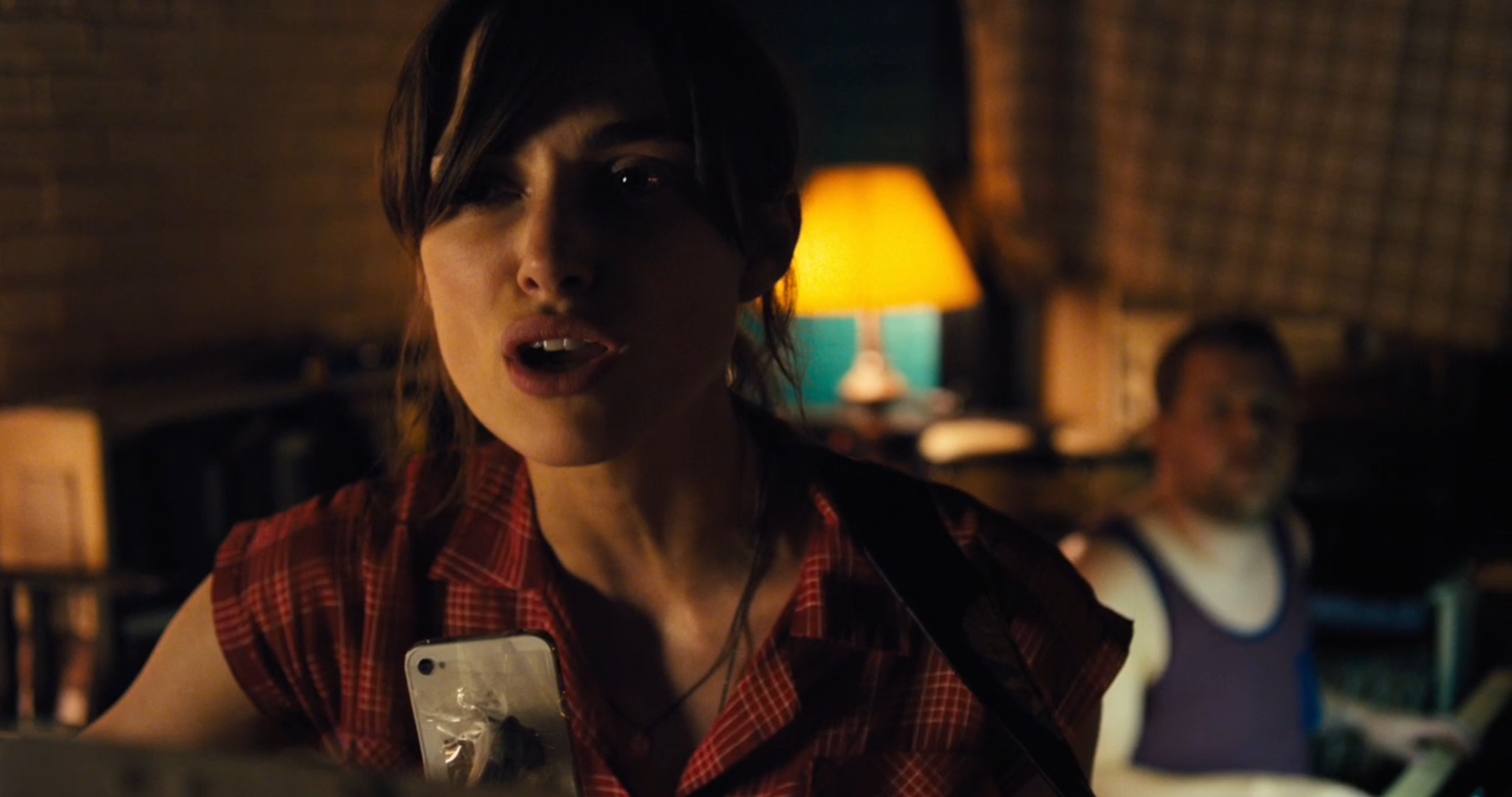Here in the United States, iTunes’ Movie of the Week is Begin Again. The 99-cent rental isn’t enough to pay for this delightful film, which I purchased over the holidays and watched with my wife. Grab it now.
There’s something appropriate about the movie being, if for no other reason than the title, Apple’s first cheap rental of the new year. The plot’s arc: music producer Dan Mulligan’s redemption from past mistakes. He must begin again, or be lost. With no money, and no record company, he convinces singer-songwriter Gretta James to make an album. Mark Ruffalo and Keira Knightley play the leads.
Common Theme
Redemption is one of the predominant themes in American cinema going back to the earliest movies. Consider Frank Capra-directed Mr. Smith Goes to Washington (1939) or It’s a Wonderful Life (1946). Some other examples, randomly chosen: Birdman of Alcatraz (1962); Cinderella Man (2005); The Dark Knight Rises (2012); Gladiator (2000); Groundhog Day (1993); Return of the Jedi (1983); Rocky (1976); Tender Mercies (1983); 12 Years a Slave (2013); Unforgiven (1992); and The Verdict (1982), among many others.
I was going to give a blah, blah definition of redemption movies, but while Googling for one thing, I found another. Site wiseGEEK, which promises “clear answers to common questions”, does better than I could:
A redemption theme is a story paradigm for fiction that centers around a fundamental moral arc within the main character from bad to good. At the start of the story the character will be less than whole and deeply flawed in a way that reverberates throughout the character’s choices and actions. By the end of the story the character will have undergone a ‘trial by fire’ that results in a Phoenix experience of rising from the ashes, a totally new, more powerful and more whole person.
The redemption arc isn’t as extreme in dramedy Begin Again as most of the movies on my random list.
New York Melodies
Irishman John Carney directs the 2013-14 release. The film debuted during the Toronto Film Festival in September 2013 as Can A Song Save Your Life?, but the title changed before theatrical release in June 2014.
The film’s opening sequence, which explores the same nightclub performance from three vantage points, is a tremendous hook—as is the plot’s forward-mover. With no studio, and no money, Dan suggests recording Gretta’s album live around New York City, capturing ambience of surrounding sounds with the music. I must say there is an immersive quality about the cinematography, settings, and framing that gives rich flavor of New York and feeling of being there with the characters.
Literarisms (It’s a word now!) reach across the screen—from plot, dialogue, and music, which no recap can describe; or should, lest ruin the film for those who haven’t seen it.
Music is one of the movie’s most important characters. Begin Again is after all about making a record album. Keira Knightley does her own vocals; her voice is fresh and light. Maroon 5’s Adam Levine is superb in his supporting actor and singer roles. But the songwriting matters more.
Gregg Alexander writes or co-composes all songs but two: “Like a Fool” by the director, and “Coming Up Roses” by Glen Hansard and Danielle Brisebois. Gregg was frontman for the New Radicals, which one-hit wonder “You Get What You Give” is one of my all-time favs. Nick Lashley and Nick Southwood also contribute to the songwriting. Most of the composers are Gregg Alexander collaborators, and former child-actress Danielle Brisebois was a New Radicals member.
Gregg’s Begin Again “Lost Stars” contribution is nominated for best original song in a motion picture. Academy Award voting closes tomorrow. I do wonder about Apple’s timing, which surely must influence someone during the final days of voting (Ever the journalist, I suspect all motivations).
I bought the movie soundtrack, which is great listening for anyone appreciating fluid, fresh songwriting that’s not over-produced.
